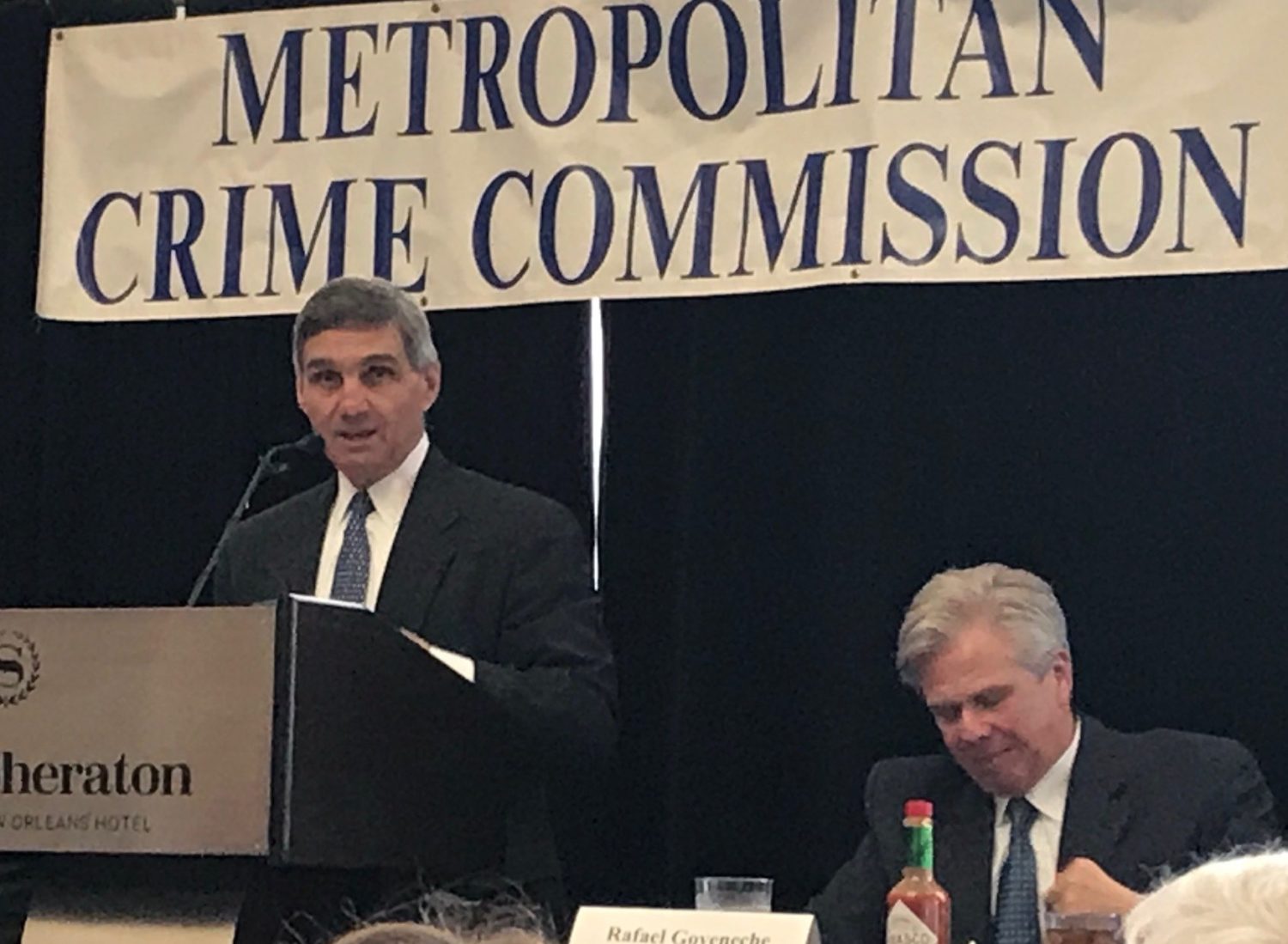New Orleans’s Youth Jail Faces Overcrowding Crisis as D.A. Targets Kids
The Orleans district attorney has said that violent youth are the city’s biggest crime problem.

Violent crime rates in New Orleans are the lowest they’ve been in decades, but according to Orleans Parish District Attorney Leon Cannizzaro Jr., the “quality of life in New Orleans is being deeply affected by the scourge of juvenile crime.”
Cannizzaro, who has served in the city since 2009, frequently speaks out about what he sees as an increase in violent youth. “The revolving door we complain about at the adult jail has nothing on the cartoonish speed of the one spinning at Juvenile Court,” he said in February. His office opened 735 juvenile felony cases in 2018.
The district attorney has used this rhetoric to justify his practice of charging an increasing number of juveniles as adults, and despite efforts to end the practice, the city continues to hold kids in adult jail.
City officials told a local reporter that so far in 2019, almost 250 children have been arrested for crimes ranging from car theft to murder. With an increase in arrests of children, the juvenile detention center has become overcrowded, forcing a growing number of children to be detained with adults.
In 2015, the City Council passed and the mayor approved an ordinance to provide 12 beds in the juvenile detention center, known as the Youth Study Center, specifically for juveniles who are under adult jurisdiction. The following year, the city unveiled its expanded juvenile jail. Yet despite an effort to keep kids awaiting trial in a separate facility, the juvenile jail is overwhelmed and understaffed.
These conditions in the jail are extremely harmful to children, said Rachel Gassert, the policy director for the Louisiana Center for Children’s Rights. Even more harmful, she said, is moving children to adult jail.
“It’s very concerning that when the juvenile detention center reaches capacity, instead of asking whether there are children that can be released, the solution is simply to move those who can legally be moved and putting those kids in a dangerous situation,” she said.
While New Orleans is roughly 60 percent Black, the juvenile arrest rate is almost always 100 percent Black, and almost all of the children prosecuted as adults are Black.
In the past, housing children in the adult jail has had disastrous consequences. In October 2016, Jaquin Thomas used a mattress cover in his cell in the New Orleans jail to suffocate himself. The 15-year-old died while awaiting trial on charges of second-degree murder and aggravated burglary.
His family immediately questioned why a child would be held in an adult jail. Research shows that children in adult jails are 36 times more likely to die by suicide than those housed in juvenile facilities.
Gassert said Cannizzaro is “focusing on crime spiking as a means of fearmongering to justify harsher policies and practices.”
Gassert and other advocates for children in New Orleans dispute the allegation that crime among children is spiking. While juvenile arrests and prosecutions of minors for violent crimes have increased in the past three years, Gassert argues that long term trends show juvenile crime has been decreasing in New Orleans and around the country. According to LCCR data, there was an increase in juvenile arrests in the city from 2017 to 2018, but most of the children were charged with nonviolent property offenses, such as car burglary. Violent crimes by children make up just 1.6 percent of all arrests in New Orleans.
“This fearmongering is likely meant to justify the DA’s severe treatment of young people, including his practice of prosecuting children as adults,” Gassert wrote in a letter to The Advocate.
By framing children as predators, Cannizzaro is also playing into racial stereotypes, Gassert said. While New Orleans is roughly 60 percent Black, the juvenile arrest rate is almost always 100 percent Black, and almost all of the children prosecuted as adults are Black.
“It raises the question of how Black children are viewed by the justice system in New Orleans and the question of whether they are considered children,” Gassert said.
If there has been a recent uptick in nonviolent crimes committed by children, advocates say there are methods to address the issue other than locking kids up. Children who have spent time in jail are more likely to commit crimes in the future, so the Louisiana Center for Children’s Rights advocates for alternatives such as restorative justice interventions and other programs aimed at children before they offend.
“Instead of arguing if we’re being too lenient or too harsh on kids, what we should be doing is asking if what we’re doing is effective,” Gassert said. “If the DA is concerned about a revolving door at Juvenile Court, locking kids up only makes it spin faster.”
